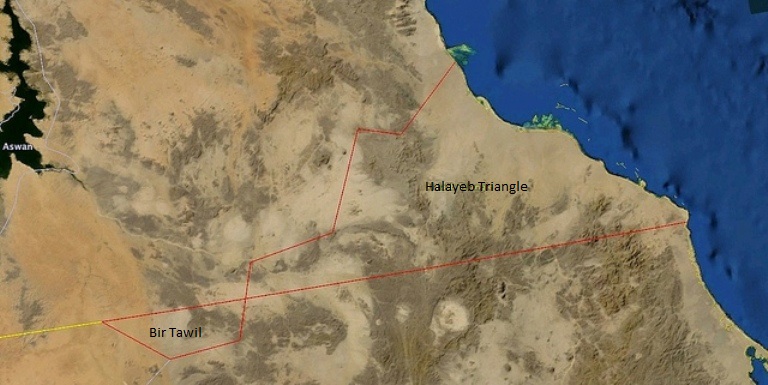Egypt seeks to drag Sudan into direct confrontation in Halayeb: official

January 3, 2018 (KHARTOUM) – The head of Sudan’s Technical Committee for Border Demarcation (TCBD) Abdalla al-Sadiq said Egypt’s actions in the disputed Halayeb triangle aim to provoke Sudan to engage in direct clashes.
The border triangle area of Halayeb, Abu Ramad and Shalateen, which is a 20,580 km area on the Red Sea, has been a contentious issue between Egypt and Sudan since 1958, shortly after Sudan gained its independence from the British-Egyptian rule in January 1956.
The area has been under Cairo’s full military control since the mid-1990’s following a Sudanese-backed attempt to kill the former Egyptian President Mohamed Hosni Mubarak.
Last month, Egypt’s Ministry of Water Resources and Irrigation announced that it would build a dam in Wadi Hodein, Shalateen area, to benefit from rainwater and floods.
The semi-official Sudan Media Center (SMC) Wednesday quoted al-Sadiq as saying the Egyptian authorities’ aggression in Halayeb triangle would be “counterproductive to Egypt”.
He described Egypt’s actions in Halayeb as “continued infringement on Sudanese territory”, saying the Egyptian aggression aims to drag Sudan to engage in direct clashes.
Al-Sadiq called for the need to resolve the issue through the peaceful means, underscoring Halayeb is a Sudanese territory and “we will restore it”.
Egypt continued to reject Sudan’s repeated calls for referring the dispute to international arbitration.
In April 2016, Cairo refused a demand by the Sudanese government to hold direct talks on Halayeb and Shalateen or to accept the referral of the dispute to the International Court of Arbitration.
The international law provides that the agreement of the two parties is needed to arbitrate a dispute with the tribunal.
In July last year, Sudan filed a notice with the UN, claiming that Egypt is occupying the triangle, and refusing to claim any rights for a third party.
In the same month, Cairo announced it would start oil and gas exploration in the Red Sea province, including the Halayeb triangle.
Tensions between Sudan and Egypt have escalated lately, due to several issues, including contention over their border, and Sudan’s support for Ethiopia in negotiations over the Ethiopian Renaissance Dam, which Cairo says will hurt its water needs.
The deterioration of bilateral relations between the two countries goes back to the attempt to assassinate President Hosni Mubarak in June 1995 followed by the deployment of Egyptian troops in Halayeb.
Since then, Khartoum has been moving to improve its ties with the eastern and western neighbours, instead of its strategic ties with Egypt.
Also, the Sudanese government recently signed investment agreements with Gulf countries. Accordingly, they will establish huge agricultural projects that require the full use of Sudan share of the Nile water, a move which is seen in Cairo as another threat to Egypt.
(ST)
